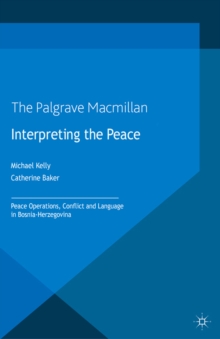
Meeting the Language Challenges of NATO Operations : Policy, Practice and Professionalization PDF
by I. Jones, Kenneth A. Loparo
Part of the Palgrave Studies in Languages at War series
Description
After 40 years of Cold War, during which it never carried out a 'live' operation, NATO suddenly found itself intervening in three conflicts - in Bosnia-Herzegovina, Kosovo and Afghanistan - where the ability to communicate with local officials and populations was essential to the success of the missions.
It was largely unprepared for this, leading to confusion and improvisation. This book explains how the Alliance responded to the language and cultural challenges it faced and how one man led efforts to reorganize and professionalize NATO's translation and interpretation support on the ground so as to ensure that the missions did not fail through lack of understanding.
The book contrasts these challenges with the situation during the Cold War period and outlines NATO's language policy and practices, including the growing dominance of the English language.
It finally recounts how NATO eventually developed a coherent doctrine on linguist support for military operations.
Information
-
Download - Immediately Available
- Format:PDF
- Pages:246 pages, 3 black & white tables, 3 maps
- Publisher:Palgrave Macmillan
- Publication Date:01/12/2014
- Category:
- ISBN:9781137312563
Other Formats
- Paperback / softback from £44.99
Information
-
Download - Immediately Available
- Format:PDF
- Pages:246 pages, 3 black & white tables, 3 maps
- Publisher:Palgrave Macmillan
- Publication Date:01/12/2014
- Category:
- ISBN:9781137312563










